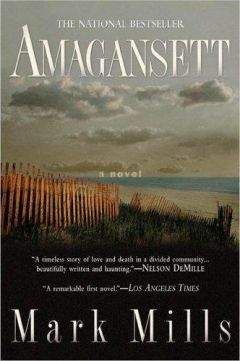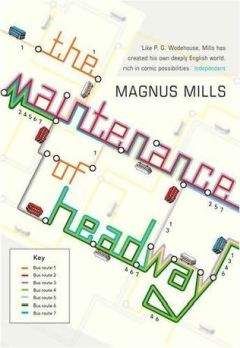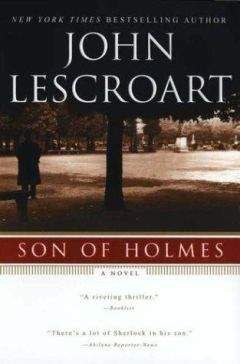Mark Mills - The Information Officer
“You find her,” said Teresa. “You find her and you bring her back to me.”
His decision to make straight for the Xara Palace at the other end of Mdina was one of expediency. The public phone lines might be out of action because of the raids, but the central phone in the mess would still be functioning.
The palace appeared to be deserted at first, swept clean of all human life. That was because the terrace at the back of the building was jammed thick with spectators—the sick, the injured, Maltese orderlies, and fresh-faced flight lieutenants. There was an exultant edge to the babble of voices passing comment on the dogfights unfolding high overhead.
Max pushed his way through the distracted throng toward the intelligence room at the end of the terrace. It was empty, and he pulled the door closed behind him. Picking up the phone, he spun the handle.
“General staff, please.”
The door swung open while he was waiting. Max didn’t recognize the young man.
“Excuse me, what are you doing?”
“What does it look like?”
“I have orders to keep that line clear.”
“And if you’d been at your post, it might still be.”
He was obviously one of the new boys, low on combat experience, tasked with manning the phones to keep him from smashing up one of the new Spits.
“Look, you can’t just come in here—”
“Don’t make me pull rank on you.”
“My orders came from the AOC himself, Major.” The schoolboy smirked. “That’s who you’ll be pulling rank on.”
Max wasn’t in the mood to drag out the conversation.
“Just bugger off. Better still, bugger off and find Ralph for me.”
Ralph’s name was what did it. Ralph was royalty.
For Max, though, Elliott was the one who mattered right then. It was time to call his hand, find out just what he knew, because it was certainly more than he’d been willing to reveal up until now.
Elliott, however, seemed to have disappeared from the face of the earth. There had still been no sign of him at the Ops Room, or anywhere else for that matter. It was possible that the man who’d answered the phone at the Y Service offices had been lying, but there was no way of knowing. Even if Max took himself off to Valetta, he’d never gain entry to the offices. Access was strictly limited to a select few.
He had just settled on his only course of action when the young flight lieutenant returned.
“Ralph isn’t here.”
“Well, he’s not down at Ta’ Qali, because I was just there.”
“He took himself off to the hospital this morning. No one’s seen him since.”
The Dog could do that to a man, if it bit him hard.
Outside, the heavy artillery opened up, which meant that Kesselring had finally got round to sending his bombers. They were too late to take out the Spitfires on the ground, but just in time to mess up Max’s plans.
“Damn,” he said, pushing past the young pilot onto the terrace.
They came from the northeast and they came in numbers, darkening the sky over Naxxar. The big guns scored a couple of early successes, one of the 88s vaporizing in a ball of fire, another spiraling earthward. A swarm of new Spitfires raced to greet the attackers, engaging with the covering force of 109s. For the past month or more the RAF had effectively been spent as a defensive force, yet here they were, back in action, wreaking havoc. It was a remarkable sight, captivating, although someone still had the presence of mind to call, “Tin hats, gentlemen, if you’re staying out.” Moments later, the first shell splinters started to rain down on Mdina.
Max remained indoors during the raids, pacing with frustration, desperate to be gone. But the planes kept coming, and precious hours ticked agonizingly by. He might have risked it if there’d been less at stake, but if he didn’t survive, what chance did Lilian have? The sporadic whoops and cheers from the terrace suggested that the Germans were receiving a battering, but somehow it didn’t matter. Nothing else mattered.
The last wave of bombers was still droning off to the southwest when he finally mounted his motorcycle. The light was beginning to fade, and he drove carefully through Rabat, eyes scanning the road surface for shrapnel. If he shredded a tire now, well, it didn’t bear thinking about.
He left Rabat by the same road he’d taken with Lilian just a couple of days before, the one that led to Boschetto Gardens. This time, though, he carried on past, following his nose. His sense of direction was notoriously poor—something he’d inherited from his father—but even he knew that Elliott’s cliff-top house lay to the south. He also knew that the only route in and out was somewhere to the east, so if he could just pick up the road he’d taken there from Valetta …
He never got a chance. The motorcycle coughed, sputtered a few times, offered one last burst of speed, and then died on him. He knew the symptoms well enough by now and cursed himself for not having checked the gas tank before setting off from Mdina. He wheeled the machine out of sight behind a stone wall. There were few landmarks of any note to guide him back to the spot, so he snapped off the branch of a carob tree and laid it on the wall. When he was done, he struck out cross-country.
The terrain was as bleak and barren as any he’d come across on the island. It was also treacherous, pitted with abandoned stone quarries, deep and sheer-sided, where a man could easily fall to his death and go undiscovered till all that remained of him were his bleached and broken bones.
The ground rose by slow degrees toward the coast, crisscrossed by ancient cart tracks that had worn neat furrows into the limestone rock beneath the thin coating of soil. He hurried as best he could, racing to beat the failing light. The sun had dropped into the western sea, and twilight was fast giving way to night.
A line of low trees, gnarled and stooped by the wind, stood guard along the narrow ridge where the ground leveled off briefly before plunging sharply away to the sea. Max paused to catch his breath and get his bearings. He had hit the coast just south of the Dingli Cliffs. This was good. It meant that Elliott’s place lay somewhere below him and to his left.
He lost his footing several times during the descent, sliding away on a stream of scree, snatching at bushes to stop himself. Fear numbed the pain of the cuts and grazes. He knew he was close when he hit a band of thick vegetation. Edging his way through the spiny shrubs, he found himself on level ground once more, a rutted trail beneath his feet. He headed left through the gloom and was pleasantly surprised some ten minutes later when he came upon the twisted cypress tree and the narrow track leading down to Elliott’s farmhouse.
He paused to collect his thoughts. There was nothing to be gained, he decided, by storming right in there, and nothing to be lost by having a quick look around before announcing himself.
It appeared at first that the place was empty, closed up, but as he crept across the courtyard, he heard noises from inside the farmhouse, coming from the kitchen: the scrape of a chair against a stone floor, the clatter of cutlery on crockery. And a voice. Not Elliott’s. It was low and gruff and speaking Maltese.
Through a crack in the shutters he saw Pawlu, the stocky fellow he’d met on his previous visit, the one who helped out around the place. He was at the kitchen table, eating by candlelight. Max couldn’t make out who he was speaking to, but that became clear when a deep growl exploded into a chorus of barks.
Max fought the instinct to run. “Hello,” he called. “Anyone at home?”
Pawlu appeared at the kitchen door, gripping the dog by its collar. He held a shotgun in his other hand. The barrels came up momentarily, then lowered again as Max approached.
“Pawlu, it’s me, Major Chadwick. We met before.”
The dog was big and black and of dubious parentage. Pawlu silenced it with a sharp reprimand.
“Is Elliott around?”
“No.”
“Do you know where he is?”
“No.”
“Nice-looking dog,” he lied. “What’s his name?”
“Why are you here?”
“I ran out of gas near Boschetto Gardens. I know Elliott’s got some cans of the stuff in the barn because he filled me up last time.”
“He’s not here.”
“I’m sure he won’t mind me helping myself. I’m in a bit of a fix.”
Max started edging toward the barn. Pawlu moved to block his way.
“It is locked.”
“The key’s under that rock there,” said Max, pointing.
“No. Elliott has the key and he is not here. I’m sorry I cannot help you.”
He wasn’t sorry, and he was probably lying about the key, but he had a gun and a mean-looking dog, and Max was in no position to push the point, not unless he came up with some way of turning the tables. He didn’t care about the gasoline anymore, but he wasn’t going to leave without taking a look inside that barn. Pawlu’s suspicious behavior demanded it.
“Do you at least have a flashlight? I’ll never find my way back in the dark.”
When Pawlu headed back inside the farmhouse, Max loitered at the kitchen door. Pawlu snapped a command to the dog, and it curled up dutifully near the fireplace. That was good. Pawlu then laid the shotgun on the kitchen table, which was even better, before returning to the door with a hurricane lamp.
“Thanks,” said Max.
Reaching for the lamp, he seized Pawlu’s wrist, yanking him with all his force into the courtyard. Almost in the same movement, he pulled the door shut on the charging, snarling dog.
Pawlu had stumbled and fallen to the ground, dropping the hurricane lamp, but he was on his feet quickly.
“What’s in the barn, Pawlu?”
Pawlu didn’t reply. He dropped his head and charged, a bull-necked battering ram, sending Max sprawling back onto the ground. Pawlu was on him in an instant, astride him, pummeling him with both fists, going for the head, working his little arms like windmills. It might have been comical if the fists hadn’t been granite-hard.
Pawlu should have pressed home his advantage; it was a mistake to go for the service revolver at Max’s hip. Max seized the moment, unleashing a scything right that caught Pawlu on the side of his head, knocking him clean off. The revolver skittered away into the darkness.
Max had never been a violent man by nature, but he knew how to box and he was fighting for a good cause. When Pawlu came at him again, he was ready, and he was angry, and he didn’t stop till Pawlu was on his knees, flailing blindly, weakly, like some automaton running down. Max finished him off with an uppercut that laid him out cold.
The dog was going wild inside the kitchen, scrabbling at the base of the door. Max recovered the revolver and stripped Pawlu of his belt, using it to lash Pawlu’s hands behind his back. The key to the barn was in his pocket.
Max lit the hurricane lamp before entering.
“Lilian …,” he called hopefully, working his way through the jumble of hoarded goods.
She wasn’t there.
Busuttil was.
He was laid out on the floor behind a heap of boxes. His hands and feet were bound, he was gagged, and dried blood masked one half of his face. He lay utterly still.
Max stared in abject horror at the spectacle, until he registered the slight rise and fall of the detective’s chest.
Dropping to his knees, Max untied Busuttil. Then he hurried outside and used the same ropes to truss up Pawlu good and proper before dragging him by the heels across the courtyard to the door of the barn. Busuttil was finally stirring, but was in no state to stand, so Max carried him to the entrance and sat him against a pile of boxes.
“Have you seen Lilian?” Max asked.
Busuttil shook his head groggily. He was fighting and failing to come to his senses, as if he’d been drugged.
The interrogation of Pawlu didn’t go much better, even after Max had emptied half a canister of gasoline over him to bring him round.
“Where is she?”
“Who?”
Max lit a match. “You think I care what happens to you? I don’t.”
Pawlu writhed like a maggot on the ground, trying to distance himself from the flame. He claimed to know nothing about a girl. All he knew was that Elliott had asked him to guard the barn, to let no one in there.
If it was a lie, it was a convincing one. Three more matches failed to shake the truth from him, and he was almost weeping when Max tossed the last one away.
“There were two men,” slurred Busuttil.
“You saw them?”
Busuttil shook his head.
“I have to go now,” said Max. “I’ll send help.” He pressed the revolver into Busuttil’s hand. “Try not to shoot them when they get here.”
Busuttil mumbled something that Max didn’t catch.
“What?”
“Ken …”
“What about him?”
“I think he has a mustache.”
Max lost most of the skin off his knees slogging back up the escarpment. It didn’t help, having a hurricane lamp in one hand and a gas canister in the other. He almost discarded the lamp once he was clear of the quarries, which would have been a mistake. He might have been able to find the motorcycle again without it, but he couldn’t have stripped the carburetor down by the light of the moon alone. It was clogged with rust, the tank having run dry. The gods, it seemed, were set on having a good laugh at his expense, and he cursed them at the top of his lungs.
It was a fiddly operation, time-consuming, and it gave him a chance to think things through. Busuttil had mentioned two men. One had to be Elliott, but who was the second? The mysterious Ken who now, it seemed, had a mustache? Max knew only one submariner with a mustache, and that was Lionel. But it was a preposterous notion: Elliott and Lionel in cahoots, a team, killing off girls together. He even laughed at the thought of it.
He strained to find another explanation, anything that would exonerate his friend, but there was no escaping the fact that Elliott had abducted Busuttil, thwarting the investigation, which meant that he sat at the heart of the affair, and had probably done so all along. If anyone knew where Lilian was, then it was Elliott. Finding him, and finding him fast, was the obvious—the only—course of action open to Max.
He was finally able to kick the motorcycle into life. He knew where he was going, and he knew what he was going to do when he got there. He wouldn’t involve the lieutenant governor’s office; they weren’t to be trusted. No, he would go straight to his own kind, to the Combined Operations Room in Valetta. At a time like this, brass hats from all the services would be gathered in the underground HQ. There would be no ignoring his story. How long could Elliott hope to remain hidden once the news had been spread that wide?
Max had passed through Zebbug and was making good time when the German bombers began to unload over the Luqa airfield. It was a heavy and systematic raid, and it lay almost directly in his path. He pulled to a halt, buffeted by the concussions, the bomb bursts ripping red holes in the darkness, blanketing the airfield. He decided to chance it. The road to Valetta skirted the airfield to the north—the direction from which the bombers were making their runs. It was well known that bombs tended to overshoot their targets, and that certainly seemed to be the case now. The southern end of the airfield was suffering badly.




